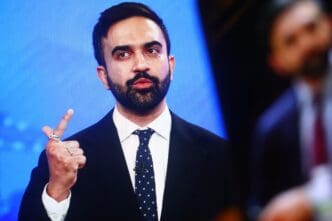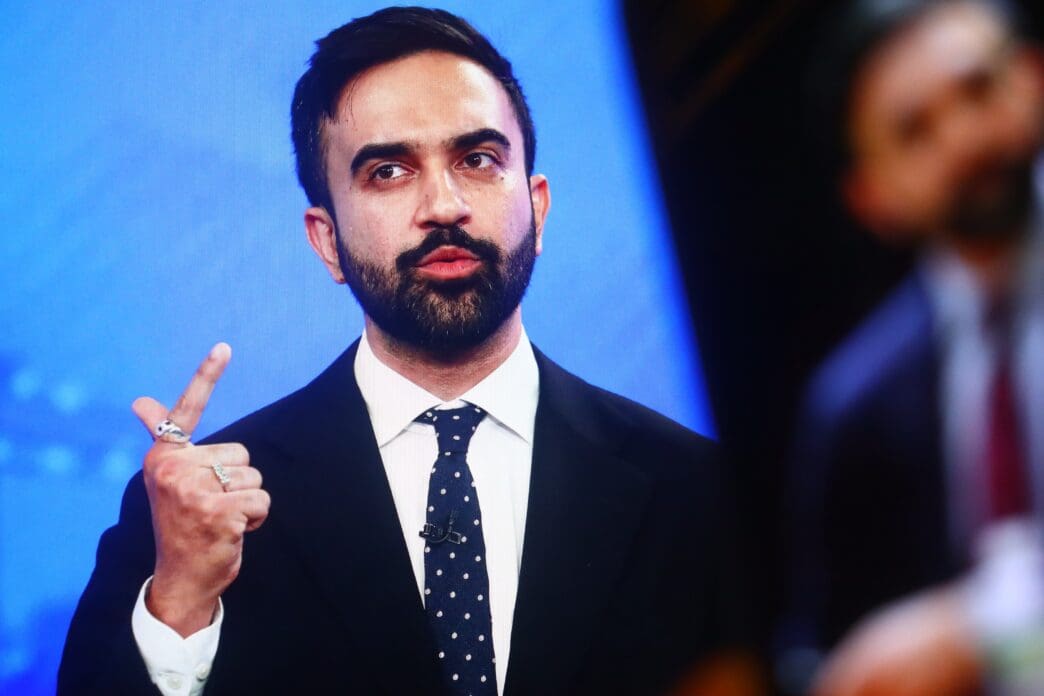Executive Summary
The Story So Far
Why This Matters
Who Thinks What?
New York City’s first general election mayoral debate on October 16, 2025, saw Democratic socialist Zohran Mamdani, the current front-runner, pressed by independent Andrew Cuomo and Republican Curtis Sliwa on the specifics of his policy proposals and past controversial statements. The two-hour event was marked by sharp exchanges, with rivals portraying Mamdani as unprepared and his plans as unrealistic fantasies.
Policy and Personal Attacks Dominate
Mamdani, 33, faced scrutiny over how he would fund signature policies such as freezing rent-controlled apartment increases and making buses free. He also addressed past comments regarding the police, which he stated no longer represent his current views. Cuomo, running as an independent after losing to Mamdani in the Democratic primary, characterized Mamdani’s agenda as based on a “myth” that Albany would approve new taxes to support his plans. Sliwa echoed this sentiment, labeling Mamdani’s ideas as “fantasies.”
The debate also featured personal attacks, with Mamdani telling Cuomo, “What I don’t have in experience, I make up for in integrity. What you don’t have in integrity, you could never make up for in experience.” This remark alluded to the sexual harassment allegations and criticisms of Cuomo’s handling of Covid-19 in nursing homes that led to his resignation as governor. Cuomo, in turn, struggled to articulate new ideas for City Hall.
The Shadow of Donald Trump
The role of President Trump in New York City politics became a point of contention. Cuomo introduced a new line of attack, suggesting that if Mamdani were elected, “Mayor Donald Trump will take over in New York City, and it will be Mayor Trump,” implying Trump would overpower Mamdani’s authority.
Mamdani responded by calling Cuomo a “coward” for his perceived failure to mention Trump in a statement condemning the Department of Justice’s indictment of State Attorney General Letitia James. When asked about their last conversations with Trump, Cuomo mentioned speaking with the president after an assassination attempt last year, while Sliwa stated he hadn’t spoken with Trump in years. Mamdani confirmed he had never spoken with Trump but expressed willingness to work with him on issues of affordability if elected mayor.
Debate on Israel and Gaza
Mamdani addressed his evolving stance on the Israeli-Palestinian conflict, acknowledging conversations with Jewish New Yorkers that deepened his understanding of antisemitism and the hurtful nature of phrases like “globalize the intifada.” He declined to state whether he believes Israel has the right to exist as a Jewish state, asserting he does not support any country existing with racial or religious hierarchies.
He also clarified his position on Hamas, stating that he believes they “should lay down their arms,” a shift from a previous statement where he said he had no opinion beyond following international law. Mamdani continued to denounce “the siege, the occupation, and apartheid,” leading to a heated exchange with Cuomo, who argued that “the occupation” implied opposition to Israel’s existence and equated it to the “from the river to the sea” slogan. Mamdani rejected this interpretation and accused Cuomo of fanning anti-Muslim sentiment.
Republican Candidate Seeks Relevance
Republican nominee Curtis Sliwa, known as the founder of the Guardian Angels, aimed to distinguish himself as an anti-establishment figure. He attacked both opponents, particularly Cuomo, questioning his toughness and criticizing the state parole board’s decisions under Cuomo’s governorship. Sliwa directly invoked Cuomo’s father, Mario Cuomo, stating, “I knew Mario Cuomo; you’re no Mario Cuomo.”
Sliwa generally received little direct engagement from Mamdani, who mostly corrected mispronunciations of his name. However, Mamdani did snap back when Sliwa claimed that “Jews don’t trust that you are going to be there for them when they’re subject to antisemitic attacks,” promising to be a mayor who “finally addresses that.”
Police Relations and Public Safety
Mamdani reiterated his apology to New York Police Department officers for past tweets that referred to them as “racist” and “wicked,” while also acknowledging Black men who have died in police encounters. He has proposed creating a Department of Community Safety, which would involve dispatching social workers to mental health crisis calls instead of solely relying on police.
Cuomo positioned himself as a tough-on-crime candidate, proposing an increase in police officer headcount and criticizing Mamdani’s approach, particularly the idea of using social workers on domestic violence calls, which he described as “very dangerous.”
Taxation and Gubernatorial Politics
Discussions covered various city issues, including the public school system and noise complaints. Mamdani expressed support for changing mayoral control over the school system to allow for more participatory governance involving parents and educators.
He also reaffirmed his plan to raise taxes on the city’s wealthiest residents, despite opposition from Governor Kathy Hochul. Mamdani acknowledged that such tax increases would require approval from the state legislature and the governor. Notably, Mamdani declined to endorse Governor Hochul for reelection, despite her prior endorsement of his mayoral campaign, stating his focus remained on winning the mayoral race.
The debate underscored the sharp ideological divides and strategic maneuvering among the candidates vying for New York City’s top office, with key policy areas and leadership styles under intense scrutiny.








